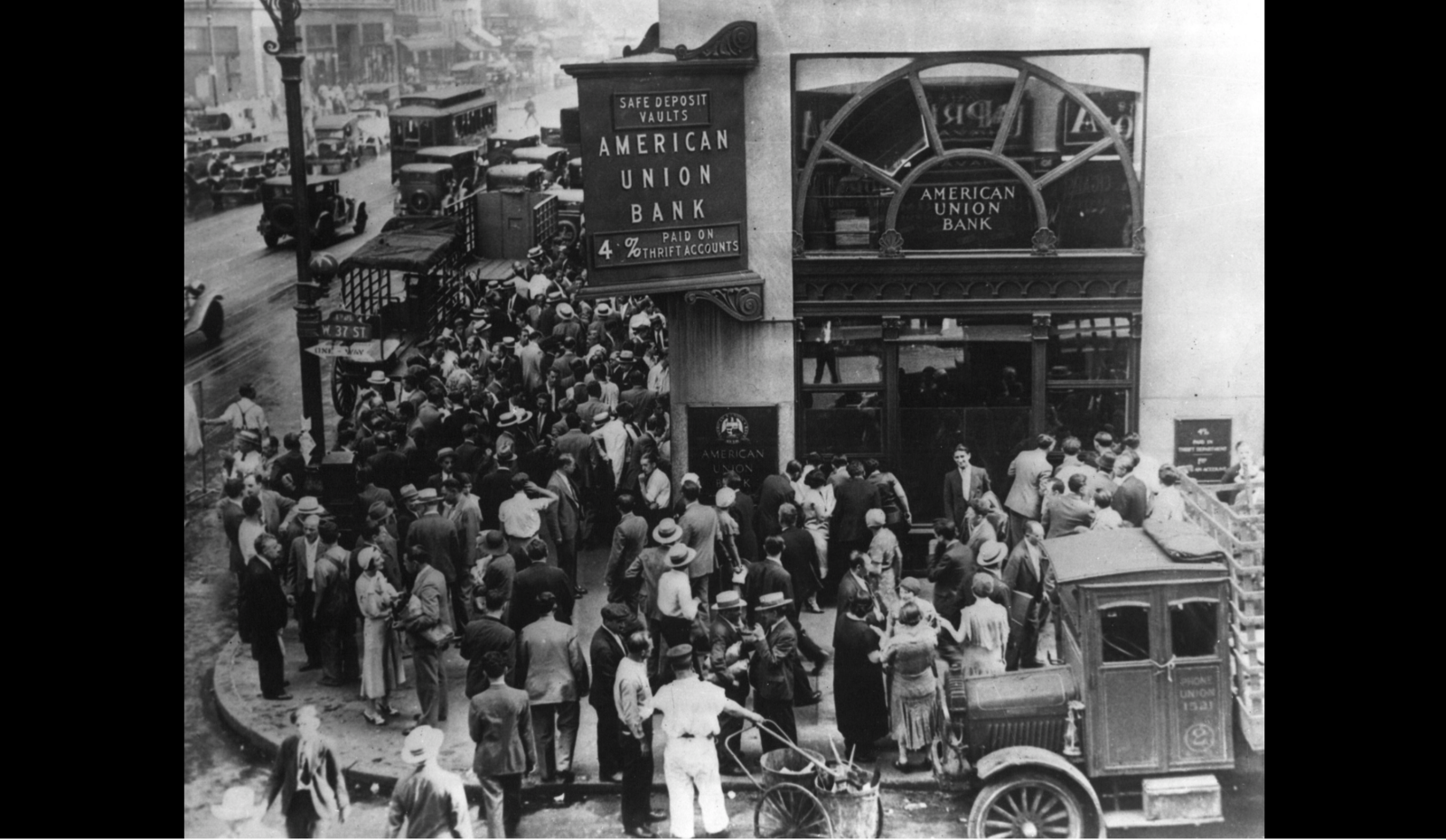Socialism makes a comeback & What is to be done? Part 1 of 2 @Nfergus @HooverInst

Image: Crowd at New York's American Union Bank during a bank run (https://en.wikipedia.org/wiki/Bank_run) early in the Great Depression (https://en.wikipedia.org/wiki/Great_Depression) . Marx argued that the devaluation of wealth during capitalism's periodic financial crises (https://en.wikipedia.org/wiki/Financial_crisis) was an inevitable outcome of the processes of wealth creation. Niall Ferguson, Hoover Institution, in re: Capitalism, socialism, over the last two centuries. Where did they come from, and how does Joseph Schumpeter inform the current debate? Schumpeter, a Harvard professor of Austrian origins, wrote, Capitalism, Socialism and Democracy. A. Can socialism survive? B. Can it work? A. No. B. Yes it can work. Neither of these pleased Professor Schumpeter. (See: Niall Ferguson: “Socialism and Free-Market Capitalism: the Human Prosperity Project,” at Defining Ideas on the Hoover Institution website.) “Capitalism” was invented in 1833 as a product of the Industrial Revolution, and was disdained. “Socialism” was first used in 1822 and considered to be meritorious. Both concepts trace back to industrial Britain. Thomas Carlyle, Scottish conservative philosopher and writer: “The industrial economy comes to the cash nexus.” That is, everything in the capitalist economy and industrial world was essentially becoming boiled down to and based on the relationships between people in the market economy —not those of the feudal order, for example, but all related to prices and wages; relationships thus reduced to “the cash nexus.” Marx stole this when he started writing and theorizing; also stole from David Ricardo, who argued there was a kind of iron law of wages that would drive wages down to a subsistence level. Marx was a great burglar of ideas. . . . Hypertrophic nationalism. Marx and Engels did not expect that wages actually went up. . . . Capitalism needs workers also to be consumers; won't work otherwise. . . .